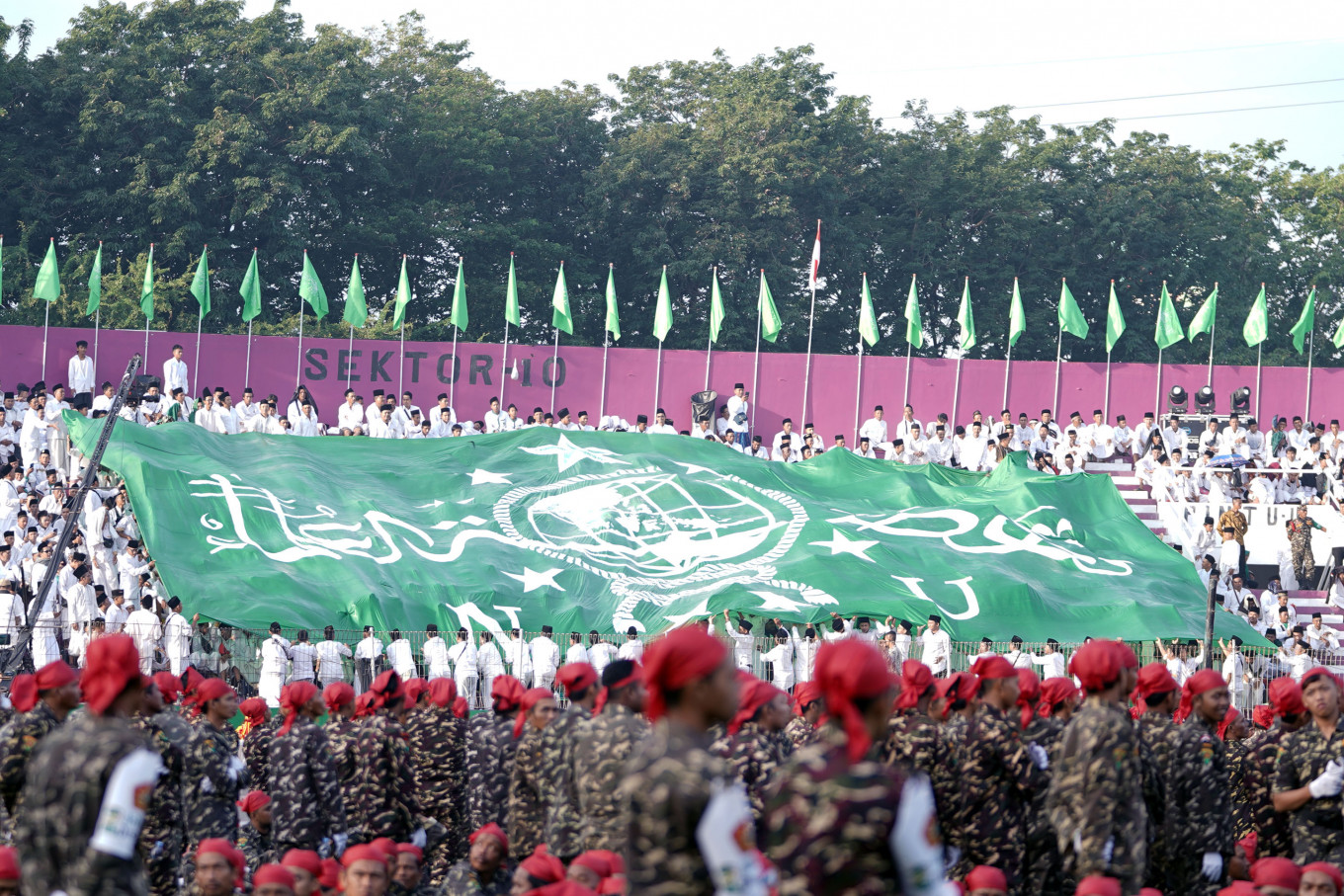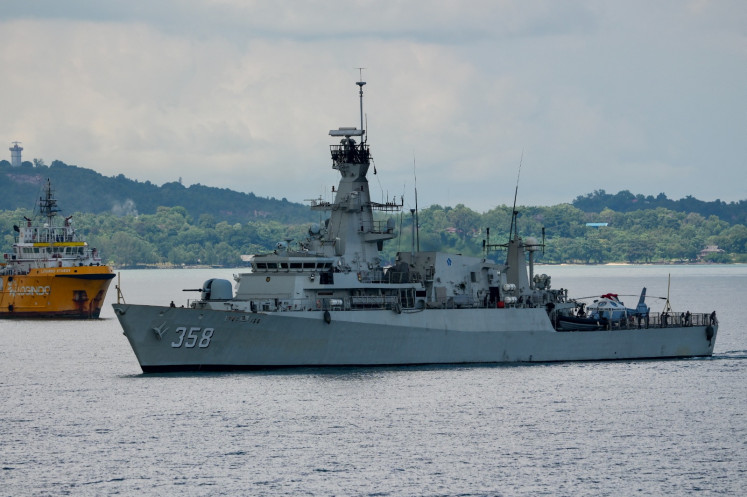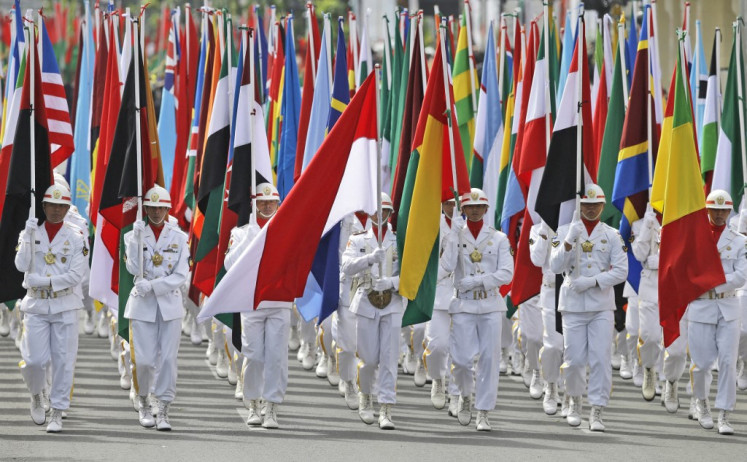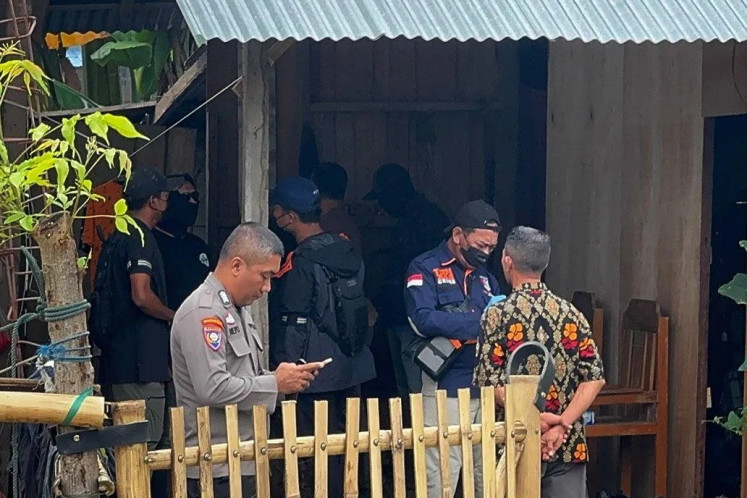Popular Reads
Top Results
Can't find what you're looking for?
View all search resultsPopular Reads
Top Results
Can't find what you're looking for?
View all search resultsIndonesia's Islam, for the world
Scholars might debate the orthodoxy of Indonesian Islam, but it may just be what world peace needs, and NU and other like-minded groups are the ones to deliver it, in line with the country's rising prominence on the global stage.
Change text size
Gift Premium Articles
to Anyone
I
ndonesia has long been considered to be on the periphery of the Muslim world, which has for centuries been represented by Arabic-speaking Gulf countries.
While Islam is embraced by a majority of Indonesians, classical Islamic scholars have debated whether Indonesia’ Islam is actually orthodox enough to be called Islam, considering how the faith is practiced in the country, especially with its idiosyncrasies.
This peculiarity of the country’s Islam is one reason that Indonesian Muslims are mostly insular, meaning that they are not really interested in spreading their brand of Islam elsewhere. In fact, Indonesia has become an ideological battleground for competing transnational Islamic movements, such as the Muslim Brotherhood, Hizbut Tahrir and the various Salafi groups.
That attitude is changing slightly as the leaders of Nahdlatul Ulama (NU), which claims to represent the face of Indonesian Islam and counts the majority of Indonesian Muslims among its members, seeks to expand its clout beyond the nation’s borders to take a leading role in a dialogue between civilizations.
In marking its centenary on Feb. 7, NU has shifted its ideological gear against what it believes is a rigid interpretation of Islam, which the organization deems incompatible with not only local traditions but also the global norms of democracy and human rights.
The organization rejects the idea of reviving the caliphate system as a way of uniting the global Muslim community, which it said would only create conflict. It is now seeking to formulate Islamic jurisprudence (fiqh) and its own school of thought on the need to create world peace, with the 1945 United Nations Charter serving as the foundational text.
This is not to say that NU wants to become a transnational Islamic movement, though it has several overseas branches. But it is clear that under the leadership of a globalist like Yahya Cholil Staquf, the organization wants to become more assertive in the global marketplace of ideas, especially at a time when the world is facing a multitude of crises, from the war in Ukraine to the warming planet.
It may sound grandiose, but we believe this is a step in the right direction, primarily because Indonesia has risen to become a global middle power that could play a greater role in bridging the divide between the West and revisionist powers like Russia and China, as well as parts of the Islamic world.
The country successfully led the Group of 20 during one of the most challenging years during this decade, perhaps even this century. It now holds the ASEAN chair in leading its fellow neighbors in Southeast Asia, the locus of the geopolitical contest between the United States and China.
NU has demonstrated its international leadership in helping to organize and lead the Religion 20 forum (R20) ahead of the G20 Summit in Bali last November.
The R20 produced a communiqué highlighting the plight of minority groups and various global challenges that had been “rendered more difficult by rivalry between and among major powers and the resurgence of identity-based conflict worldwide”.
Just last month, a Swedish right-wing activist burned a copy of the Quran, sparking anger across the Muslim world and again showing how fragile the relationship is between cultures. NU can help defuse the tension resulting from such actions, which was clearly aimed to provoke the Muslim community.
Of course, NU cannot do this alone. It must work with other religious organizations that share its worldviews. Former Muhammadiyah chairman Din Syamsuddin, for example, has already established the Centre for Dialogue and Cooperation Among Civilizations (CDCC) in pursuit of a similar aim, so NU and Muhammadiyah can work together to shape Indonesia’s own brand of “Islamic diplomacy”.
As an organization that has worked long to preserve traditional wisdoms while also responding to modern challenges, NU is well positioned to make a difference. It has played and will continue to play a critical role in defending religious freedom in the country. It is now time for NU to bring the wisdoms of Indonesian Islam, or Islam Nusantara, to the world.
Here's to another 100 years.











